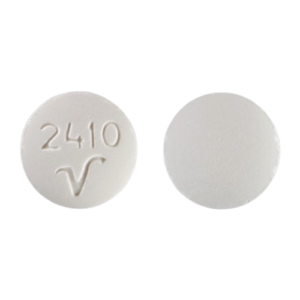Need Help? Chat Online or Toll Free: +1 315-897-3886
New Customers get 10% off using code:CDD10NEW at checkout. Maximum $100 discount.
Soma, also known as carisoprodol, is a prescription medication primarily used to relieve discomfort associated with acute musculoskeletal conditions. It belongs to a class of drugs known as muscle relaxants. Soma works by affecting the communication between nerves in the central nervous system, altering the sensation of pain between the brain and the nerves.
Introduction to Soma (Carisoprodol)
Soma, chemically known as carisoprodol, was first approved by the FDA in 1959 and has since been a commonly prescribed muscle relaxant. It’s typically used in the short-term treatment of musculoskeletal conditions such as muscle spasms, strains, and sprains. The drug is usually prescribed alongside rest, physical therapy, and other measures to alleviate discomfort and facilitate healing.


Uses of Soma
1. Muscle Spasms: Soma is primarily indicated for the relief of acute musculoskeletal discomfort caused by muscle spasms or injuries.
2. Pain Relief: It can help alleviate pain associated with musculoskeletal injuries, allowing patients to engage in rehabilitation activities more comfortably.
3. Physical Therapy: Soma may be prescribed as an adjunct to physical therapy to enhance the effectiveness of therapeutic exercises.
4. Short-term Treatment: Due to its potential for abuse and dependence, Soma is typically prescribed for short-term use, usually for up to two to three weeks.
Mechanism of Action
Soma exerts its therapeutic effects through its action on the central nervous system. It acts as a centrally acting muscle relaxant, although its precise mechanism of action is not fully understood. It is believed to work by modulating the activity of neurotransmitters in the brain, particularly GABA receptors, which are involved in inhibiting neuronal activity. By enhancing the inhibitory effects of GABA, Soma reduces the transmission of pain signals and induces muscle relaxation.
Dosage and Administration
Soma is available in tablet form for oral administration. The typical recommended dosage for adults is 250 to 350 milligrams taken three times a day and at bedtime. The total daily dose should not exceed 1400 milligrams. It is important to follow the dosage instructions provided by the healthcare provider and not to exceed the recommended duration of use, typically two to three weeks.
Side Effects of Soma
While Soma can be effective in relieving musculoskeletal discomfort, it is not without potential side effects. Common side effects may include:
1.Drowsiness:Soma can cause drowsiness or dizziness, impairing the ability to concentrate or operate machinery safely.
2. Dizziness: Some individuals may experience dizziness or lightheadedness, especially when changing positions.
3.Headache: Headaches are a common side effect of Soma use.
4.Dry Mouth: Soma may cause dry mouth, which can be alleviated by staying hydrated and using sugar-free gum or candy.
5. Nausea: Nausea or gastrointestinal upset may occur in some individuals.
6. Euphoria: Soma has the potential to produce feelings of euphoria or relaxation, leading to its abuse potential.
Precautions and Warnings
Before taking Soma, it is important to discuss any medical conditions or medications with a healthcare provider, as certain conditions or medications may interact with Soma or increase the risk of adverse effects. Some precautions to consider include:
1.Pregnancy and Lactation: Soma should be used with caution during pregnancy and lactation, as its safety has not been established in these populations.
2.Liver Impairment: Individuals with liver impairment should use Soma with caution, as the drug is metabolized in the liver and may accumulate in the body.
3.Renal Impairment: Soma should be used with caution in individuals with renal impairment, as clearance of the drug may be reduced.
4.Substance Abuse:Soma has a potential for abuse and dependence, particularly in individuals with a history of substance abuse or addiction.
5. Driving and Operating Machinery: Soma can impair cognitive and motor function, so individuals taking the medication should avoid driving or operating machinery until they know how it affects them.
Contraindications
Soma is contraindicated in certain populations due to the risk of adverse effects or interactions. Contraindications include:
1. Hypersensitivity: Individuals with a known hypersensitivity to carisoprodol or any of the ingredients in Soma should not take the medication.
2. Porphyria: Soma should be avoided in individuals with a history of porphyria, a group of rare disorders that affect the nervous system or skin.
3. Acute Intermittent Porphyria: Soma should not be used in individuals with acute intermittent porphyria, a specific type of porphyria.
Overdose and Addiction Potential
Soma has a potential for abuse and dependence, particularly when used inappropriately or for extended periods. Overdose can lead to serious consequences, including respiratory depression, coma, and death. Symptoms of overdose may include:
– Severe drowsiness
– Hypotension (low blood pressure)
– Respiratory depression
– Coma
In the event of an overdose, immediate medical attention should be sought. Treatment may involve supportive care, such as airway management, ventilation, and administration of antidotes if necessary.
Withdrawal Symptoms
Abrupt discontinuation of Soma after prolonged use may lead to withdrawal symptoms, which can include:
– Insomnia
– Headaches
– Nausea
– Abdominal cramps
– Anxiety
– Irritability
To minimize the risk of withdrawal symptoms, Soma should be tapered gradually under the guidance of a healthcare provider.
Conclusion
Soma, or carisoprodol, is a muscle relaxant commonly used to relieve acute musculoskeletal discomfort associated with muscle spasms and injuries. While it can be effective in providing short-term relief, it is important to use Soma cautiously and under the guidance of a healthcare provider due to its potential for abuse, dependence, and adverse effects. By understanding its mechanism of action, proper dosage, potential side effects, and precautions, individuals can use Soma safely and effectively to manage musculoskeletal conditions and promote recovery. However, it is essential to follow medical advice closely and to seek prompt medical attention in the event of any concerning symptoms or adverse reactions.

Experience the ease of managing your health with Onlinedeliveryrx.com Our online platform offers a seamless way to order your medication from the comfort of your home. Trust us for reliable service and timely delivery, ensuring your wellness is always within reach.
Email: support@onlinedeliveryrx.com
Call Us: +1 315 897 3886
909 E. Indigo Ct. Gilbert AZ 85298



